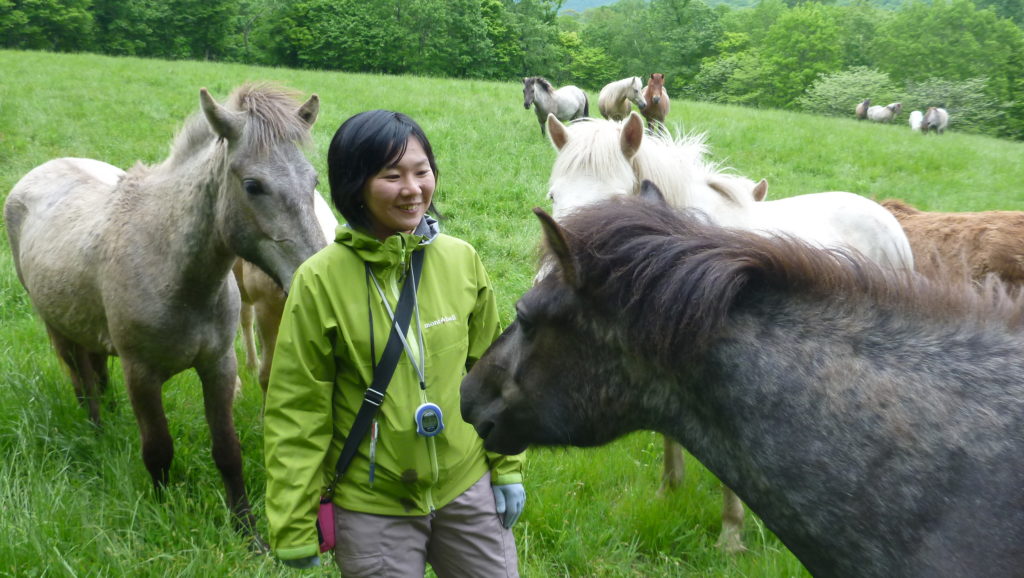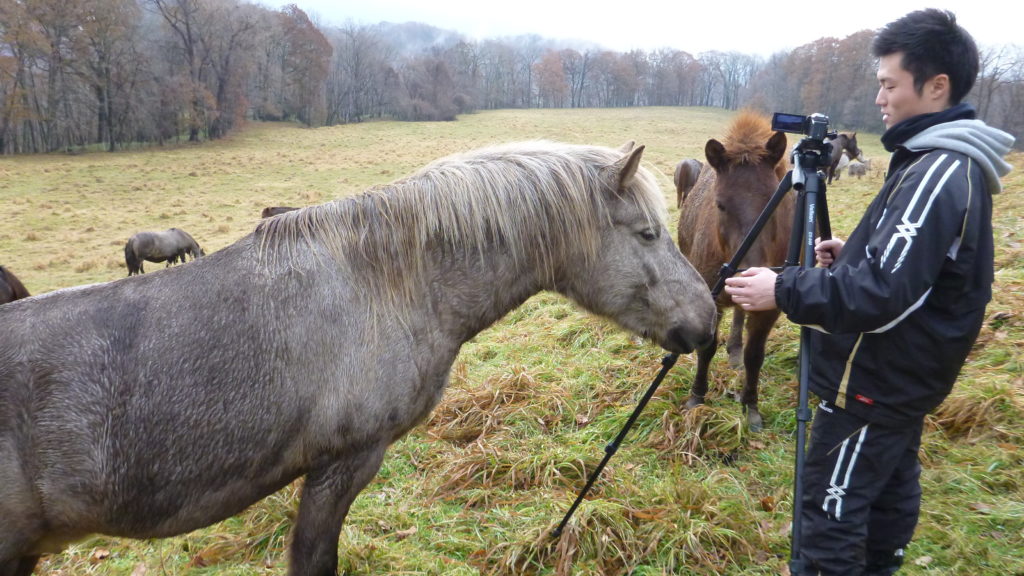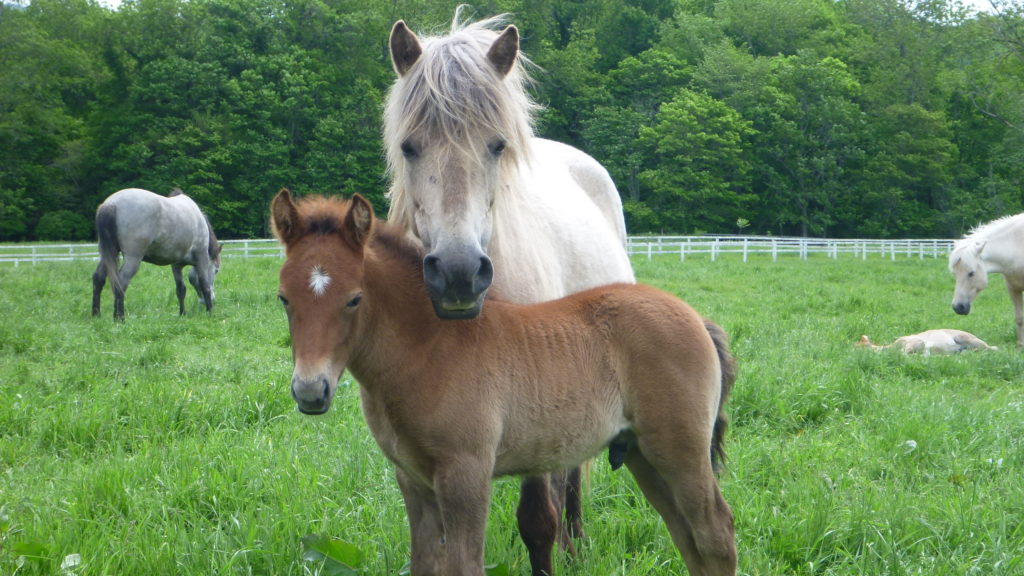Spotlight on Research: Do horses factor in empathy and fairness in their decisions?
Research Highlight | September 26, 2017

Animals cooperate and help each other through big and small situations on a daily basis. How cooperative behaviors and tendencies change in humans throughout our lifetimes may be a fairly commonly studied subject, but how do these social behaviors change over time for other animals? Dr. Ayaka Takimoto with the Graduate School of Letters looks to answer this question. Her research focuses on the evolution of pro-sociality, or cooperation, in social creatures (e.g. horses, monkeys, etc.), and she is particularly intrigued in the psychological mechanisms at work supporting these behaviors. Why is a horse’s mood influenced by the moods of those around them, and why do monkeys choose to share their food with certain monkeys and not others? Are empathy and fairness influencing these decisions?
The basis of Takimoto’s research comes from studying the behaviors of capuchin monkeys, which are native to Central and South America. Using a food box mechanism that allows one of the monkeys to choose whether to share food of high-value, her experiments showed that there is a tendency for monkeys to refrain from sharing food with dominate members of their species unless they helped in obtaining it. Cross-comparison of the data with other studies on nonhuman primates also helped confirm that social animals tend to engage in friendly interactions with those who reciprocate kindness. However, this is not to say capuchin monkeys don’t share with more dominant monkeys. Especially considering they are highly social animals, dominant and subordinate monkeys still often share food with each other irregardless.
Takimoto’s current ongoing research examines how another social animal, horses, build social bonds with humans and other horses. The former is done in cooperation with Hokkaido University’s and the University of Tokyo’s Horse Riding Clubs and their Thoroughbred horses. One of the experiments combines visual and auditory elements to test the horses’ recognition of human emotions. For this experiment, images and sound-files of their caretakers and strangers were taken beforehand to create a more controlled experiment. The horses were then guided by helpers in front of a screen which would show either a happy or angry face. Afterwards, they would hear a voice either praising or scolding them. If the images and voices were consistent with each other (a positive image with a positive voice or a negative image with a negative voice), there usually was not a significant change in the horses’ response. However, if the images and voices were inconsistent, especially if they were that of their caretaker, they would become perplexed – shooting glances around in what can be described as a sort of “Eh?” expression.

In south-eastern Hokkaido at Shizunai Farm, affiliated with the university’s Field Science Center for Northern Biosphere, Takimoto also studies the relationship between the native Hokkaido Horses living there. She plans to create diagrams illustrating the complex social network between the horses at the farm by observing their grooming habits, closeness to each other, food sharing behaviors, and aggressiveness. She hopes to find out why horses displaying a set of behaviors fit into certain groups, why horses react differently to certain horses, and the extent in which emotions influence these decisions.
“Generally, I think people feel that horses don’t have personalities. But, when I observe their behavior in groups, I see a very big variation. For example, there is this one very pro-social mother who breaks up fights between other mothers. There is also a mother who is very friendly to not just her own foals, but other foals too,” explained Takimoto.
The data from Takimoto’s studies will help bring to light the extent that emotions, such as empathy and fairness, influence the decisions of social animals. It also addresses whether pro-social behaviors in social animals are inherent or if they are learned over time from an animal’s experiences. In the future, Takimoto will also be building on one of her newer studies explaining behaviors and personalities in horses through DNA analyses. The results from her experiments may not only change our perception of social animals in general, but also positively affect their welfare by allowing us to more efficiently assign these animals—such as horses—to particular roles in society.

Researcher Details:
Associate Professor Ayaka Takimoto
Department of Behavioral Science
Graduate School of Letters
atakimoto@let.hokudai.ac.jp
Author: Dr. Katrina-Kay Alaimo
